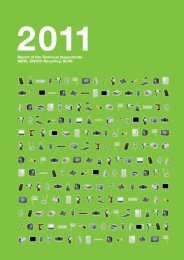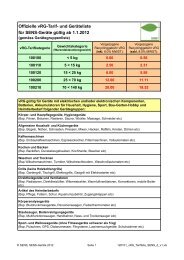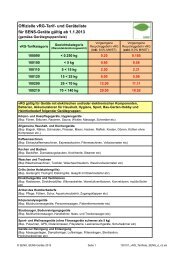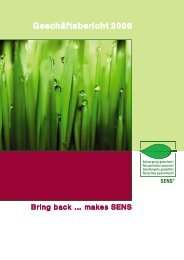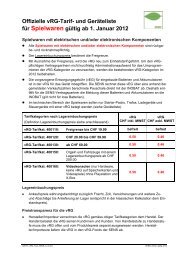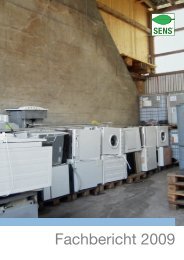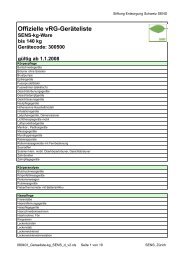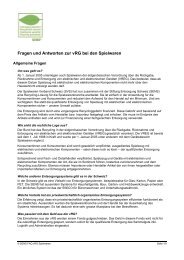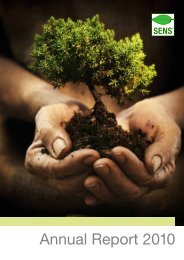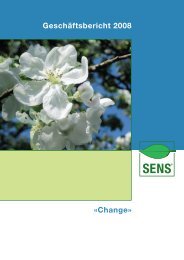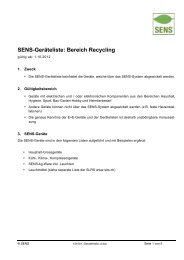Annual Report - Sens
Annual Report - Sens
Annual Report - Sens
Create successful ePaper yourself
Turn your PDF publications into a flip-book with our unique Google optimized e-Paper software.
Interview<br />
e-Recycling:<br />
politics and society<br />
Mr Weibel, how much importance does Swiss society<br />
attach to resource efficiency?<br />
Benedikt Weibel: Resource efficiency is becoming increasingly<br />
important, for both Switzerland and the world as a whole.<br />
Using all our resources as efficiently as possible is now a priority.<br />
At the same time, recycling and waste management have<br />
also been gaining in importance for a good while now.<br />
“It is in times when raw materials grow<br />
ever scarcer that optimised, efficient<br />
processes become all the more significant<br />
in economic terms.”<br />
Whereas in the past people were primarily preoccupied with<br />
how to dispose of waste, in the last two decades there has<br />
been a very noticeable trend towards further developing ways<br />
of managing waste correctly, that is, recycling it and recovering<br />
and regenerating resources. The longer this necessary development<br />
is implemented, the more widespread it becomes. It<br />
is in times when raw materials grow ever scarcer that optimised,<br />
efficient processes become all the more significant in<br />
economic terms.<br />
In this context, the pioneering role of the Swiss householdappliances<br />
industry organised in the FEA deserves to be mentioned.<br />
Its measures, which were already implemented in the<br />
1980s, sought to recover materials right from the beginning.<br />
8 SENS <strong>Annual</strong> <strong>Report</strong> 2011<br />
In which areas of mobility do you see a need for action as<br />
far as resource efficiency is concerned?<br />
First there are clear signs that the automotive industry has<br />
made huge strides in recent years when it comes to energy<br />
efficiency – thanks to strict regulatory requirements, as it should<br />
be noted. This process will continue unabated in the future.<br />
The railways have been resting on the laurels they owe to their<br />
relatively healthy energy balance for perhaps too long now.<br />
It seems quite a long time since they made great progress, for<br />
example in recouping energy when travelling downhill, compared<br />
to recent developments in automotive engineering.<br />
However, the latest studies on the rolling stock industry have<br />
revealed considerable further potential for saving energy.<br />
Yet the most efficient and cheapest way of enhancing energy<br />
efficiency in both private and public transport is by increasing<br />
occupancy. Two people in one car instead of two cars each<br />
carrying one person is the most intelligent way of maximising<br />
resource efficiency. Levelling out transport peaks would be<br />
equally efficient.<br />
“Yet the most efficient and cheapest way<br />
of enhancing energy efficiency in both<br />
private and public transport is by increasing<br />
occupancy.”



